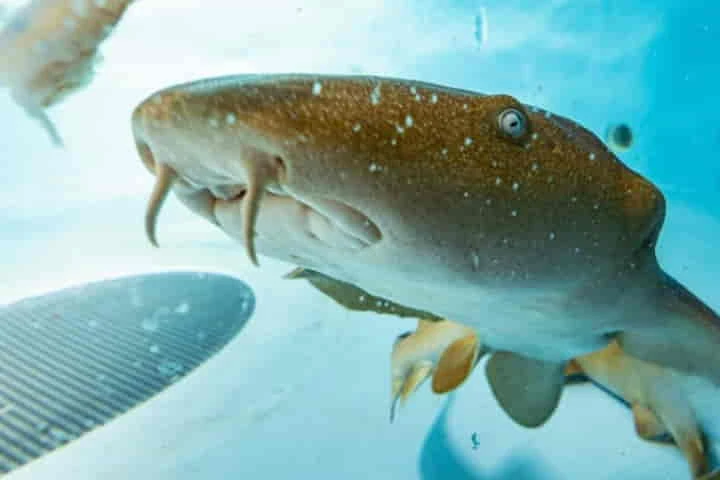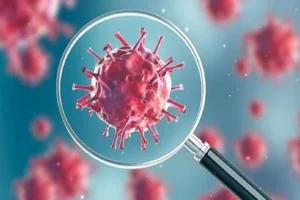In their natural habitat, that is water, sharks are dreaded by human beings and other creatures. Yet according to an article in smithsonianmag.com, a new study published in Nature Communications, states that these feared fishes may hold the key to our fight and effective treatment against the present raging pandemic Covid-19.
For the purpose of this study, scientists are studying nurse sharks also known as Ginglymostomatidae, which are slow-moving and found in Pacific and Atlantic oceans.
As per a write-up in Milwaukee Journal Sentinel, Mark Johnson mentions that scientists have discovered tiny antibodies in the blood of these fishes that may ward off SARS-CoV-2, the Covid-19 causing virus and also its variants, from getting into and infecting the cells of human beings.
The study’s results as per a statement by University of Wisconsin-Madison, could aid the scientists to get ready for outbreaks in future of the animal-borne viruses that move to human beings while also providing an understanding about how to build resistance to the viruses without getting vaccinated for those who are immunocompromised and do no respond well to vaccination.
Providing details about these antibody-like proteins, the statement said that they are called Variable Antigen Receptors (VNARS) and are one of the smallest naturally-occurring binding domains found in nature. The VNARS of the shark are one-tenth of that of antibodies of human beings and these tie the viral proteins in a manner that infection is prevented.
The author of the study Aaron LeBeau who is a UW-Madison pathologist in the statement said: "The big issue is there are a number of coronaviruses that are poised for emergence in humans. What we're doing is preparing an arsenal of shark VNAR therapeutics that could be used down the road for future SARS outbreaks. It's a kind of insurance against the future."
Having been on the earth for nearly 500 million years, the sharks during this long duration have evolved an immune system which is better than most other mammals.
It was in the 1980s that the sharks’ antibodies were discovered by the researchers of Free University of Brussels. The shape of these bodies is distinctive and by packing together tightly they don’t allow the Coronavirus from securing themselves to the cells of human beings. It is precisely for this reason that immunologists are keenly examining and studying antibodies of the sharks for use in future in immunotherapeutic settings and for treating and curing cancers and also bringing out new drugs.
Interestingly, these antibodies are also found in camels, alpacas and llamas.
Also read: New study suggests twilight zone between wakefulness and sleep triggers creativity
When the nurse shark’s antibodies were used against the Coronavirus and its variations in the lab using human embryonic kidney and lung cells, it was found to be effective. Scientists observed that the antibodies deterred the virus from entering cells by disallowing the spike protein from gripping onto the ACE2 receptor on human cells.
The team in collaboration with Elasmogen, a biotech firm which is Scottish and works on therapeutic VNARs and University of Minnesota experts, tested shark VNARs against the infectious SARS-Cov-2 and a pseudotype that does not replicate cells.
Of the billions of VNARS, the scientists zeroed on three that stopped SARS-Cov-2 from entering human cells.
Even though these are sharks’ antibodies, being quite similar to that of human beings, the chances of their being rejected is unlikely. But, as they are small, giving them to those affected by Covid-19 may not be effective because they may be filtered out of the body through the kidneys faster than the human antibodies, according to Toni Galli writing for WKOW. This means that there will not be enough time for the patients to derive benefits to build immunity.
Also read: Augmented Reality Helps People To Overcome The Fear Of Spiders!
Talking to WKOW, LeBeau informed that collaboration with Elasmogen may result in human trials and that shark antibodies treatment development may take place as early as two years. The antibodies will need to be tried and tested in rats and mice to determine their safety. Following this phase, they will have to be tested in non-human primates. It is after all this that the treatment will be ready for the first phase of clinical human trial.
Summing the study, LeBeau told the Journal Sentinel: “We think they're the next big thing. This is the first paper to show their effectiveness against an infectious disease."




















